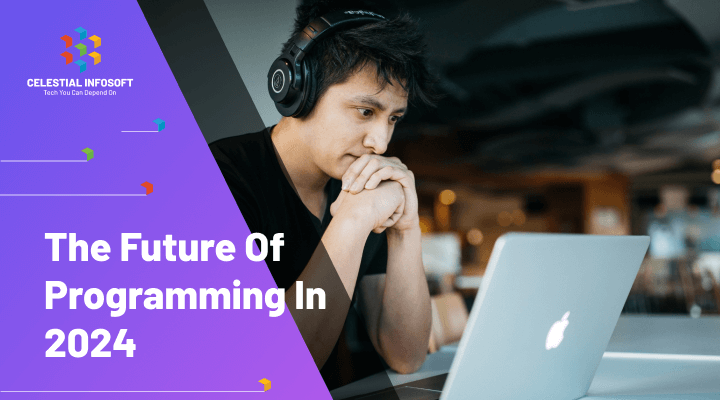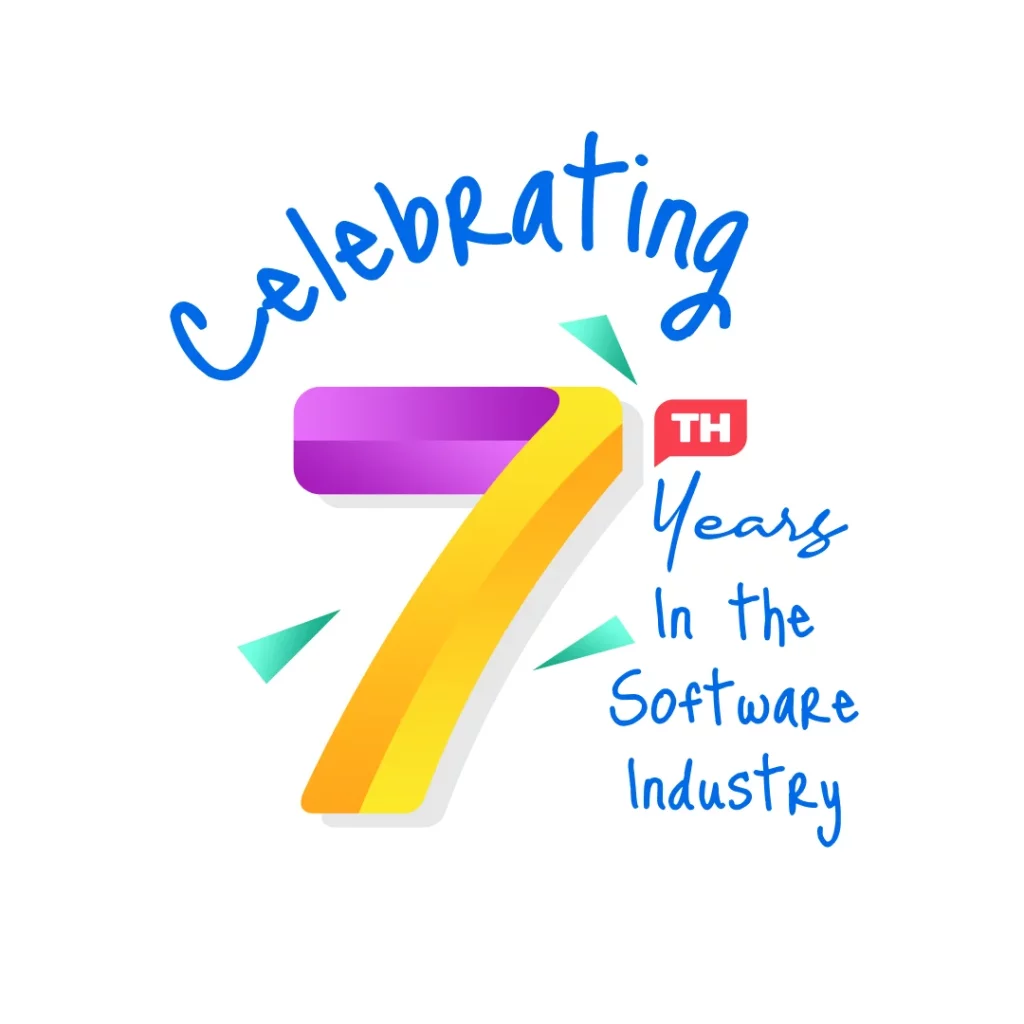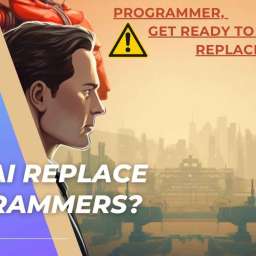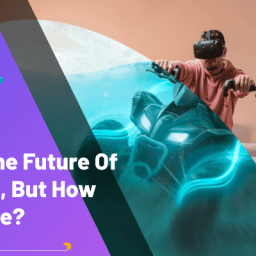
Table of Contents
Since the concept of technology development, classical coding has been the central platform underlying most technological developments and innovative work to create sophisticated software systems. It has come a long way from assembly language to the present-day high-level languages that are being used in the current society and the market. Programmers have been the engineers of the information society, typing the good lines that govern all applications, including the web, artificial intelligence, and so on.
Nevertheless, the paradigms compared to the development of software are currently changing. With the advent of no-code and low-code platforms and the increasing role of AI in automating coding tasks, a new question arises: Is coding, as we know it, becoming obsolete? Is it possible that one day the craft of coding will be a fairly minor part of software application formation?
Therefore, in this blog, I will be focusing on something shifted as to the future of programming in a world where coding is no longer the epicenter. We will discuss more about no-code and low-code platforms, the use of AI in writing code, and programming course trends.
The Evolving Landscape of Coding
The history of coding started with assembly languages that required developers to write code closely linked to hardware, which, while highly effective, was also rather complicated. Following the requirement for increased efficiency, new programming languages rose in the 1950s and 1960s, such as FORTRAN and COBOL, which are more advanced and easier to interpret by human beings. This evolution went on with remarkable achievements like the development of C in 1972, which provided access to features at a low level to end off, and the introduction of object-oriented programming in the 1980s, which incorporated code with reusable objects, resulting in better design and scalability.
Web design, or the creation of the World Wide Web or websites, began in the 1990s with languages like HTML, CSS, and JavaScript. The advancement of software technologies fared similarly to that of server-side languages and frameworks. Innovatively, coding has evolved and transformed to fit various technologies and the society where IDE and version control systems contribute to high-efficiency levels.
The current transition to no-code and low-code platforms as the new direction for the future is intended to bring software development to those who do not know programming languages and decrease the costs and time for development.
The Main Reasons for Why Coding No More?
A. Solutions such as no-code and low-code platforms
Low-code and no-code are transforming developers by introducing a new way of developing applications for those who lack adequate programming knowledge. Services such as Bubble, Webflow, and Microsoft Power Apps are non-coding apps that allow users to design even intricate applications using graphical methods instead of coding.
These platforms make it easier to come up with solutions, and the entire process of creating a solution is fast. It can be undertaken by business people without involving IT specialists. Thus, the democratization of app development lowers the threshold and shortens the time to market, which is appealing for many use cases compared to traditional coding.
B. Role of Artificial intelligence and automation in programming
With regards to programming, AI, and automation are playing a major role in the reduction of human repetitive tasks and the improvement of coding performance. GitHub Copilot and OpenAI Codex are AI code completion products that leverage machine learning over code data to provide code completions, debug aids, and other improvements to software development tasks.
These advancements ease the processes that would normally take time from the developer, and thus more time is spent on solving complex problems and designing. Consequently, with the further perfection of AI technologies, the need for classic coding might be reduced even more, thus making software development less critical in terms of the programming background.
Are Programmers Obsolete? A Professional Guide
Keep learning programming! As Dave’s Garage emphasizes, the coding revolution is just beginning, and exciting opportunities are emerging. While coding methods are evolving, programming is far from obsolete. Accept innovation to keep moving forward in such a changing field! Here are some benefits and a few limitations about whether should you still learn it. or not decision is yours.
Benefits of Learning Programming in 2024:
- High Demand for Technical Skills: While no-code platforms are increasingly popular, coding is and will continue to be a highly demanded competency in the modern labor market. Having programming language knowledge allows you to get a job in software development, data science, cybersecurity, and others.
- Enhanced Problem-Solving Abilities: Programming creates good critical and logical thinking abilities. It teaches people to comprehend problems rationally and find the means of solving them, developing coping skills that are suitable for various spheres of life and work.
- Foundation for Emerging Technologies: Any businessperson or entrepreneur needs to gain prior knowledge of coding, and this knowledge helps in dealing with the current rising technologies such as artificial intelligence, machine learning, and blockchain technologies. It is paramount for those stakeholders to acquire and possess such knowledge, especially with the constantly changing environment in the technology industry.
- Creativity and Innovation: Programming is creativity-enhancing in that it allows for the construction of unique designs by the users. Thus, it helps people achieve their goals and implement changes in different aspects.
Limitations of Studying Programming in 2024:
- Steep Learning Curve: Coding is not an easy subject to master when one is learning; it is even harder for those who are coding for the first time. As mentioned above, some programs and ideas present in programming languages might be sophisticated and exhaustive; hence, they take a lot of time to understand.
- No-Code Alternatives: This leads to the fact that today, the process of application development may occur even without deeper coding experience due to the no-code and low-code platforms. To some extent, these platforms may be sufficient for various projects and may minimize the direct demand for the application of classical coding competencies at the moment.
- Rapid Technological Changes: This means that, on average, programming languages, technologies, and tools have a very short lifespan. To remain relevant to the latest fashions and innovations, one needs to constantly educate oneself.
- Opportunity Cost: Spending time and money on coding courses may not always contribute to working positions or fields of interest. There are others for whom it might be better to focus on other skills or areas altogether.
The Latest Technology to Focus on for Your Career Future

- Python Programming: Python is highly relevant to all of the following: web development because of its simplicity and immensely helpful libraries such as NumPy and TensorFlow. It has multiple uses and is easy to understand, so it exists in several sectors today.
- AI and machine learning: This technology empowers devices to make informed choices based on available data. These include TensorFlow and PyTorch, among others, which are revolutionizing industries like the health and financial sectors through analytic and automated solutions.
- Blockchain Technology: Smart contracts and digital identity verification are some of the efficient ways that can be realized by using blockchain technology. Such platforms as Ethereum reside under this technology that has shifted the ways data is processed and transactions made.
- Cloud Computing: Cloud solutions provide centralized IT services through something like AWS or Azure, which assist with remote work or application development. Contemporary IT management must possess information about cloud services and DevOps.
- Cybersecurity: It, on the other hand, concerns itself with the protection of data from attacks. There is heightened demand for professionals, especially in areas such as network security and ethical hacking, and tools such as the SIEM system are essential in protecting assets.
- Quantum Computing: It makes use of quantum mechanics to solve problems, ahead of what classical computers can do. While it is just getting started, it has great applicability in areas such as cryptography and optimization.
- Games or apps using AR and VR: AR applications are used in gaming, training, and education, while VR offers interactive training, education, and gaming experiences. Such technologies are built using platforms like Unity, which is essential for these technologies that are fast-growing in different fields.
Bonus Tips for Programmers to Tackle AI Wave
If you want to do a job that’s kinda like a hobby, you can do a job
– Elon Musk
Thus, the future of programming is not about replacing it with the help of AI but about making it a strategic partner. This kind of approach is based on the integration of the creative abilities of man and the speed of functioning of artificial intelligence, which can be a mutually beneficial cooperation that promotes effective solutions. Here’s the guidance framework for programmers: Here’s the guidance framework for programmers:
- Accept collaboration: Instead of going to bed thinking that an AI will soon take your job or replace your doctor, begin to see the technology as an assistant. AI shines in repetitive processes, as it frees the programmers’ time for more innovation and enhances the product’s challenging aspects. Develop the latest coding skills to make you more marketable in the future.
- Boost creativity with AI: It should complement creativity instead of replacing it. These processes can be aided by AI-made tools that help in the processes of general brainstorming, the generation of ideas, and quick prototyping. It means that this collaboration can lead to solutions that are more creative and actively developed.
- Continuous learning and upskilling: Ensure that you keep an eye on the evolving AI and that you are always up to date with the new practices. The selected results reveal that programmers who invest in learning AI technologies will be in a better position to deal with the cross-functional flow and dynamics of the field.
- Focusing on similar areas: Enumerate situations where the use of AI would be most useful in the areas where it supports and enhances human abilities, as opposed to threatening to take over the job. Focus on areas of the business that benefit most from the integration of artificial intelligence, meaning that the role can be more specific and of higher value.
- Integrated Daily Tasks: AI, in this case, can be used to assist in automating routine and prescriptive work so that developers can code only work that requires free thinking and idea generation. It can be seen that this kind of strategic automation can help to increase general efficiency.
- Assist in decision-making: The input and influence of the external environment should not necessarily be allowed to determine the major decisions of the organization. To put it simply, meanings never come out of the analytical process, however useful, without calling for human judgment about context and ethical implications at the very least.
- Develop the coding community: Apply AI to illiteracy in coding. Promote the creation of tools based on AI that are intuitive and can allow anyone to code, while also expanding the opportunities for people, including those with problems with coding.
People think that AI can replace human programmers in the future. Really What do you think?
Please share with us your opinion on this topic that continuously changes its nature! You are welcome to share your opinion, whether you believe in AI involvement in programming or not. Interact with the people in our community and learn from them regarding the possibilities of technological innovation in programming.
Frequently Asked Questions ( FAQ )
Is programming popular in 2024?
Yes, programming’s demand is still very relevant up to 2024. Due to the constant advancement of roles within the tech, software, and digitalization sectors throughout the world, programmers are important. The growth in the application of new technologies such as artificial intelligence, blockchain, and cloud computing makes it imperative that there will always be a need for programming skills to develop and manage new applications.
What are the new trends for the year 2024?
Thus, in the context of 2024, the programming trends depend on the languages that are used for the present-day requirements. Languages that are famous for flexibility, for instance, Python in the modern world—are still popular. Increasing interest can be noted concerning the extended features of JavaScript coding. Also, languages such as Rust and Go are sought after when it comes to systems programming or cloud-native development due to their performance and overall space efficiency.
Where is the programming profession heading?
The programming profession is changing, and programming specifics are becoming more and more targeted in such fields as AI, blockchain, and quantum computing. Clerical and repetitive coding will be left to the machines, whereas many more people will be needed to create the change necessary to advance the profession and to implement integrated new products and services into current systems while finding unique and efficient solutions when faced with large-scale problems. The subjects form the foundation for consideration of the nature of the field, which will require continuous learning and strength in adaptation.




Can you be more specific about the content of your article? After reading it, I still have some doubts. Hope you can help me.
Thank you for engaging with our blog post! We appreciate your feedback and would be happy to provide additional clarification on any specific points you’re unsure about. Please feel free to let us know which parts of the article you’d like more information on, and we’ll do our best to address your doubts. Your input helps us improve the quality of our content and ensure it meets your needs.
Your article helped me a lot, is there any more related content? Thanks!
yes we have.
Your point of view caught my eye and was very interesting. Thanks. I have a question for you.
Can you be more specific about the content of your article? After reading it, I still have some doubts. Hope you can help me.